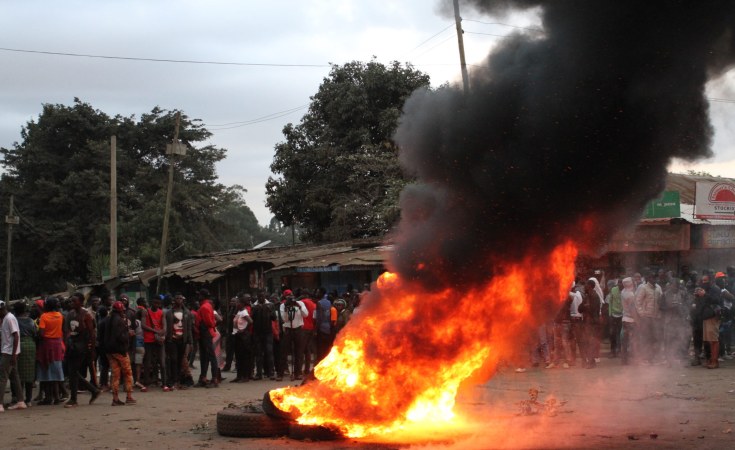Kenya's president-elect, William Ruto, has been accused of crimes against humanity and corruption. He's been declared winner in results now mired in controversy. It's a disappointing turn, writes Patrick Gathara.
It is a disappointing turn in what had initially promised to be Kenya's most transparent election. After a day of relatively problem-free voting, nearly a week of counting and tallying up the ballots, and scanned forms containing results being openly posted on a publicly accessible online portal, the process has at the last minute degenerated into farce and acrimony.
A majority of commissioners of the Independent Electoral and Boundaries Commission (IEBC) disowned the results on the final day, calling the process opaque. Among them was the deputy head of the commission, who in the preceding days had been at the podium in the tallying hall in Nairobi's Bomas of Kenya, declaring the very results she now seems to cast aspersions on.
The media's opacity fed rumors
Fearful of the worst, as the counting proceeded at snail's pace, Kenyans stayed at home with schools and businesses closed. That this was the product of an election that, right up to the final declaration of the results of the presidential election, had been acclaimed as a lesson in transparency, is befuddling. What could have gone so wrong?
I think that the problem was that even as the IEBC bared all, others who may have had misgivings about the process did not. For example, the media -- which had promised an independent tally -- suddenly suspended its counting without offering an explanation, creating room for all sorts of speculation.
Some suggested media counts had been hacked, and others that the forms on the IEBC's online portal -- upon which media were basing their counts -- had been compromised. Little evidence of this was offered, but the media's opacity fed such rumors.
Dissenting electoral commissioners
Further, the Azimio la Umoja coalition, whose candidate Raila Odinga narrowly lost the race, for days had agents in the hall as the IEBC was engaged in a verification exercise to establish the genuineness of the forms it was to use to declare the result.
At no point in the process, even as the results were being publicly declared, and scanned forms were openly available on the online portal, did they raise objections. And even after rejecting the results, the coalition said nothing about its intentions; whether it would challenge the result in court, or would pursue other means for redress. The four commissioners who dissented failed to give reasons for their dissent rather than the vague, and rather ironic, allegation of opacity.
This is not to suggest that the media, the politicians and the commissioners lack valid reasons for their objections. However, it is a bitter pill to swallow for the Kenyans who have demanded transparency of the IEBC for well over a decade, to turn around and find that the very institutions and people who would most benefit from such transparency who are now the custodians of the dark.
Transparency gaps in electoral process
If there is one thing that Kenyans should take away from these elections, it is that transparency from the state authorities running the election, while necessary, is insufficient when not matched by similar transparency on the part of individuals and organizations engaged in the process.
In the last 15 years since the disastrous 2007 elections that resulted in widespread violence that killed over 1,300 people and displaced hundreds of thousands, efforts to reform the process have largely focused on the need to constrain the state, which has historically been most responsible for the violence and stealing that has characterized previous elections.
Now, that focus must be expanded to include all other actors in the electoral system.
Edited by: Benita van Eyssen


